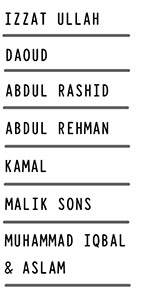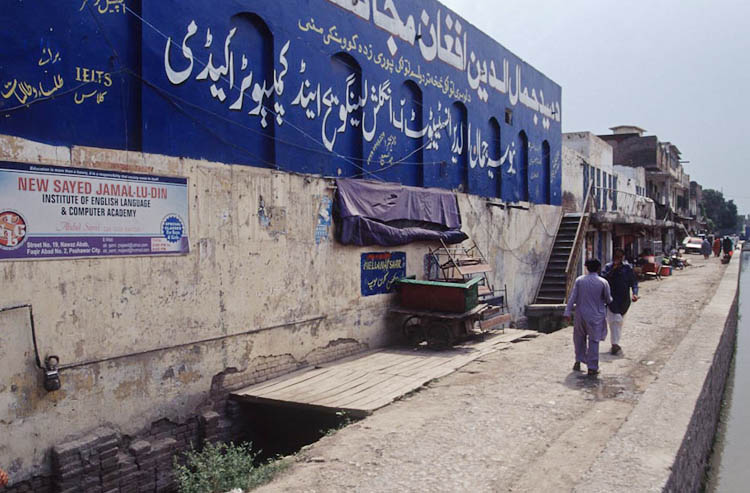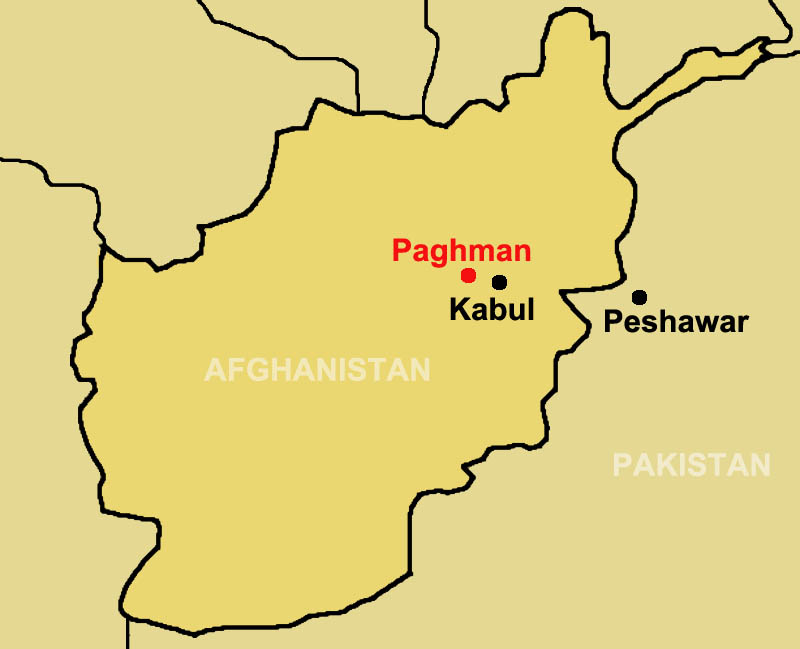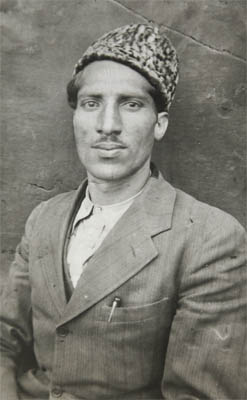|
|
ABDUL REHMAN | ||||||||||||
Abdul Rehman has just whisked away a plastic lens cap hand from a digital camera. There are four customers waiting in his shop, New Kabul Studio, in the Afghan Colony, Peshawar, yet Abdul continues to explain the workings of a kamra-e-faoree. His five-year old son Abdullah (pictured on the right above) looks on. "Exposures would last one to four seconds on a sunny day, up to fifty on a cloudy one," Abdul explains. Directly opposite the shop on the other side of the canal a cyclist glides by the spot where he used to work on the camera in his younger days.
Originally from Paghman outside Kabul, forty-year old Abdul and his family moved to Peshawar as refugees twenty-seven years ago, a few years after his father had passed away.
His teacher on the kamra-e-faoree was Ustad (teacher) Zahir. In Peshawar Mujahedin commanders would bring along new recruits to Abdul to get their photographs taken for party ID cards; and families of Afghan refugees living in the colony had their photographs taken by him to accompany documentation for food rations (see the process of taking a 'family photo' video here). All of the custom in the colony managed to sustain about seven box camera photographers. But the most profitable time came between 2004 and 2005, Abdul remembers. Afghan refugees were being repatriated by the UN en masse and needed ID photos for the necessary documentation (as part of a repatriation scheme that began in 2002 that has seen millions of Afghans return home). Looking at the photographs we brought from Afghanistan, Abdul recognises Abdul Satar, a photographer living in Kabul, who along with his brothers used to own a number of photo-studios beside the canal in the Afghan colony when they lived there as refugees in the 1990s. Then he sees a photograph of Abdul Satar’s father, Abdul Samad.
"Oh! He is very young there," exclaims Abdul Rehman. But he never returned home, Abdul tells us, he passed on in Peshawar.
|
|||||||||||||







